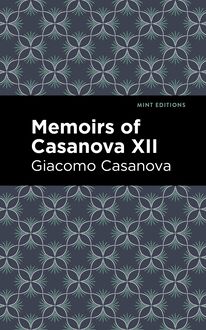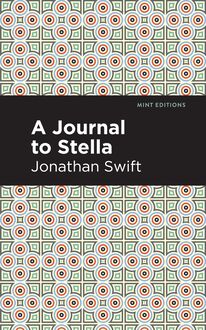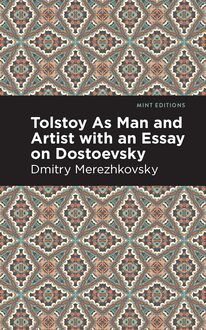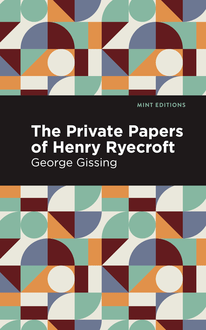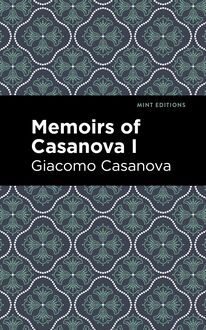-
 Univers
Univers
-
 Ebooks
Ebooks
-
 Livres audio
Livres audio
-
 Presse
Presse
-
 Podcasts
Podcasts
-
 BD
BD
-
 Documents
Documents
-
- Cours
- Révisions
- Ressources pédagogiques
- Sciences de l’éducation
- Manuels scolaires
- Langues
- Travaux de classe
- Annales de BEP
- Etudes supérieures
- Maternelle et primaire
- Fiches de lecture
- Orientation scolaire
- Méthodologie
- Corrigés de devoir
- Annales d’examens et concours
- Annales du bac
- Annales du brevet
- Rapports de stage
La lecture à portée de main
Vous pourrez modifier la taille du texte de cet ouvrage
Découvre YouScribe en t'inscrivant gratuitement
Je m'inscrisDécouvre YouScribe en t'inscrivant gratuitement
Je m'inscrisEn savoir plus
Vous pourrez modifier la taille du texte de cet ouvrage
En savoir plus

Description
Memoirs of Casanova (1792) is the autobiography of Italian adventure and socialite Giacomo Casanova. Written at the end of his life, the Memoirs capture the experiences of one of Europe’s most notorious figures, a man whose escapades as a gambler, womanizer, and socialite are matched only by his unique gift for sharing them with the world. More than perhaps any other man, Casanova sought to emulate the lessons of the Enlightenment on the level of everyday life, a sentiment captured perfectly in the opening sentence of his Memoirs: “I will begin with this confession: whatever I have done in the course of my life, whether it be good or evil, has been done freely; I am a free agent.” Memoirs of Casanova Volume X finds Giacomo Casanova in grave danger, perhaps the most serious of his life. Having fallen into the trap of Manucci, a spy for the state, Casanova is arrested and sentenced without trial to five years imprisonment. Held in the infamous Leads, the prison under the Doge’s Palace, he suffers in solitary confinement through unbearable heat, overwhelming darkness, and an infestation of fleas. After months in this cell, he is moved from solitary confinement, given better clothes and accommodations, and allowed to go outside for brief, supervised walks. Seeing an opportunity, Casanova begins planning his escape, collecting tools and conspiring with a fellow prisoner in order to achieve his freedom. When the day arrives, and after several aborted attempts, he seizes his only chance. With a beautifully designed cover and professionally typeset manuscript, this edition of Giacomo Casanova’s Memoirs of Casanova is a classic of European literature reimagined for modern readers.
Sujets
Informations
| Publié par | Mint Editions |
| Date de parution | 27 avril 2021 |
| Nombre de lectures | 0 |
| EAN13 | 9781513286945 |
| Langue | English |
| Poids de l'ouvrage | 2 Mo |
Informations légales : prix de location à la page 0,0400€. Cette information est donnée uniquement à titre indicatif conformément à la législation en vigueur.
Extrait
Memoirs of Casanova Volume X
Giacomo Casanova
Memoirs of Casanova Volume X was first published in 1902.
This edition published by Mint Editions 2021.
ISBN 9781513281926 | E-ISBN 9781513286945
Published by Mint Editions®
minteditionbooks.com
Publishing Director: Jennifer Newens
Design & Production: Rachel Lopez Metzger
Project Manager: Micaela Clark
Translated By: Arthur Machen
Typesetting: Westchester Publishing Services
C ONTENTS I. Under the Leads—The Earthquake II. Various Adventures—My Companions—I Prepare to Escape—Change of Cell III. The Subterranean Prisons Known as the Wells—Lawrence’s Vengeance—I Enter into a Correspondence With Another Prisoner, Father Balbi: His Character—I Plan With Him a Means of Escape—How I Contrived to Let Him Have My Pike I am Given a Scoundrelly Companion: His Portrait IV. Treason of Soradaci—How I Get the Best of Him—Father Balbi Ends His Work—I Escape from My Cell—Unseasonable Observations of Count Asquin the Critical Moment V. The Escape I Nearly Lose My Life on the Roof I Get out of the Ducal Palace, Take a Boat, and Reach the Mainland—Danger to Which I am Exposed by Father Balbi—My Scheme for Ridding Myself of Him VI. I Find a Lodging in the House of the Chief of the Sbirri—I Pass a Good Night There and Recover My Strength—I Go to Mass—A Disagreeable Meeting I am Obliged to Take Six Sequins by Force—Out of Danger—Arrived at Munich—Balbi I Set Out for Paris—My Arrival—Attempt on the Life of Louis XV VII. The Minister of Foreign Affairs M. de Boulogne, the Comptroller—M. le Duc de Choiseul—M. Paris du Vernai—Establishment of the Lottery—My Brother’s Arrival at Paris; His Reception by the Academy
I
U NDER THE L EADS —T HE E ARTHQUAKE
What a strange and unexplained power certain words exercise upon the soul! I, who the evening before so bravely fortified myself with my innocence and courage, by the word tribunal was turned to a stone, with merely the faculty of passive obedience left to me.
My desk was open, and all my papers were on a table where I was accustomed to write.
“Take them,” said I, to the agent of the dreadful Tribunal, pointing to the papers which covered the table. He filled a bag with them, and gave it to one of the sbirri, and then told me that I must also give up the bound manuscripts which I had in my possession. I shewed him where they were, and this incident opened my eyes. I saw now, clearly enough, that I had been betrayed by the wretch Manuzzi. The books were, “The Key of Solomon the King,” “The Zecorben,” a “Picatrix,” a book of “Instructions on the Planetary Hours,” and the necessary incantations for conversing with demons of all sorts. Those who were aware that I possessed these books took me for an expert magician, and I was not sorry to have such a reputation.
Messer-Grande took also the books on the table by my bed, such as Petrarch, Ariosto, Horace. “The Military’ Philosopher” (a manuscript which Mathilde had given me), “The Porter of Chartreux,” and “The Aretin,” which Manuzzi had also denounced, for Messer-Grande asked me for it by name. This spy, Manuzzi, had all the appearance of an honest man—a very necessary qualification for his profession. His son made his fortune in Poland by marrying a lady named Opeska, whom, as they say, he killed, though I have never had any positive proof on the matter, and am willing to stretch Christian charity to the extent of believing he was innocent, although he was quite capable of such a crime.
While Messer-Grande was thus rummaging among my manuscripts, books and letters, I was dressing myself in an absent-minded manner, neither hurrying myself nor the reverse. I made my toilette, shaved myself, and combed my hair; putting on mechanically a laced shirt and my holiday suit without saying a word, and without Messer-Grande—who did not let me escape his sight for an instant—complaining that I was dressing myself as if I were going to a wedding.
As I went out I was surprised to see a band of forty men-at-arms in the ante-room. They had done me the honour of thinking all these men necessary for my arrest, though, according to the axiom ‘Ne Hercules quidem contra duos’, two would have been enough. It is curious that in London, where everyone is brave, only one man is needed to arrest another, whereas in my dear native land, where cowardice prevails, thirty are required. The reason is, perhaps, that the coward on the offensive is more afraid than the coward on the defensive, and thus a man usually cowardly is transformed for the moment into a man of courage. It is certain that at Venice one often sees a man defending himself against twenty sbirri, and finally escaping after beating them soundly. I remember once helping a friend of mine at Paris to escape from the hands of forty bum-bailiffs, and we put the whole vile rout of them to flight.
Messer-Grande made me get into a gondola, and sat down near me with an escort of four men. When we came to our destination he offered me coffee, which I refused; and he then shut me up in a room. I passed these four hours in sleep, waking up every quarter of an hour to pass water—an extraordinary occurrence, as I was not at all subject to stranguary; the heat was great, and I had not supped the evening before. I have noticed at other times that surprise at a deed of oppression acts on me as a powerful narcotic, but I found out at the time I speak of that great surprise is also a diuretic. I make this discovery over to the doctors, it is possible that some learned man may make use of it to solace the ills of humanity. I remember laughing very heartily at Prague six years ago, on learning that some thin-skinned ladies, on reading my flight from The Leads, which was published at that date, took great offence at the above account, which they thought I should have done well to leave out. I should have left it out, perhaps, in speaking to a lady, but the public is not a pretty woman whom I am intent on cajoling, my only aim is to be instructive. Indeed, I see no impropriety in the circumstance I have narrated, which is as common to men and women as eating and drinking; and if there is anything in it to shock too sensitive nerves, it is that we resemble in this respect the cows and pigs.
It is probable that just as my overwhelmed soul gave signs of its failing strength by the loss of the thinking faculty, so my body distilled a great part of those fluids which by their continual circulation set the thinking faculty in motion. Thus a sudden shock might cause instantaneous death, and send one to Paradise by a cut much too short.
In course of time the captain of the men-at-arms came to tell me that he was under orders to take me under the Leads. Without a word I followed him. We went by gondola, and after a thousand turnings among the small canals we got into the Grand Canal, and landed at the prison quay. After climbing several flights of stairs we crossed a closed bridge which forms the communication between the prisons and the Doge’s palace, crossing the canal called Rio di Palazzo. On the other side of this bridge there is a gallery which we traversed. We then crossed one room, and entered another, where sat an individual in the dress of a noble, who, after looking fixedly at me, said, “E quello, mettetelo in deposito:”
This man was the secretary of the Inquisitors, the prudent Dominic Cavalli, who was apparently ashamed to speak Venetian in my presence as he pronounced my doom in the Tuscan language.
Messer-Grande then made me over to the warden of The Leads, who stood by with an enormous bunch of keys, and accompanied by two guards, made me climb two short flights of stairs, at the top of which followed a passage and then another gallery, at the end of which he opened a door, and I found myself in a dirty garret, thirty-six feet long by twelve broad, badly lighted by a window high up in the roof. I thought this garret was my prison, but I was mistaken; for, taking an enormous key, the gaoler opened a thick door lined with iron, three and a half feet high, with a round hole in the middle, eight inches in diameter, just as I was looking intently at an iron machine. This machine was like a horse shoe, an inch thick and about five inches across from one end to the other. I was thinking what could be the use to which this horrible instrument was put, when the gaoler said, with a smile,
“I see, sir, that you wish to know what that is for, and as it happens I can satisfy your curiosity. When their excellencies give orders that anyone is to be strangled, he is made to sit down on a stool, the back turned to this collar, and his head is so placed that the collar goes round one half of the neck. A silk band, which goes round the other half, passes through this hole, and the two ends are connected with the axle of a wheel which is turned by someone until the prisoner gives up the ghost, for the confessor, God be thanked! never leaves him till he is dead.”
“All this sounds very ingenious, and I should think that it is you who have the honour of turning the wheel.”
He made no answer, and signing to me to enter, which I did by bending double, he shut me up, and afterwards asked me through the grated hole what I would like to eat.
“I haven’t thought anything about it yet,” I answered. And he went away, locking all the doors carefully behind him.
Stunned with grief, I leant my elbows on the top of the grating. It was crossed, by six iron bars an inch thick, which formed sixteen square holes. This opening would have lighted my cell, if a square beam supporting the roof which joined the wall below the window had not intercepted what little light came into that horrid garret. After making the tour of my sad abode, my head lowered, as the cell was not more than five and a half feet high, I found by groping along that it formed three-quarters of a square of twelve feet. The fourth quarter was a kind of recess, which would have held a bed; but the
-
 Univers
Univers
-
 Ebooks
Ebooks
-
 Livres audio
Livres audio
-
 Presse
Presse
-
 Podcasts
Podcasts
-
 BD
BD
-
 Documents
Documents
-
Jeunesse
-
Littérature
-
Ressources professionnelles
-
Santé et bien-être
-
Savoirs
-
Education
-
Loisirs et hobbies
-
Art, musique et cinéma
-
Actualité et débat de société
-
Jeunesse
-
Littérature
-
Ressources professionnelles
-
Santé et bien-être
-
Savoirs
-
Education
-
Loisirs et hobbies
-
Art, musique et cinéma
-
Actualité et débat de société
-
Actualités
-
Lifestyle
-
Presse jeunesse
-
Presse professionnelle
-
Pratique
-
Presse sportive
-
Presse internationale
-
Culture & Médias
-
Action et Aventures
-
Science-fiction et Fantasy
-
Société
-
Jeunesse
-
Littérature
-
Ressources professionnelles
-
Santé et bien-être
-
Savoirs
-
Education
-
Loisirs et hobbies
-
Art, musique et cinéma
-
Actualité et débat de société
- Cours
- Révisions
- Ressources pédagogiques
- Sciences de l’éducation
- Manuels scolaires
- Langues
- Travaux de classe
- Annales de BEP
- Etudes supérieures
- Maternelle et primaire
- Fiches de lecture
- Orientation scolaire
- Méthodologie
- Corrigés de devoir
- Annales d’examens et concours
- Annales du bac
- Annales du brevet
- Rapports de stage


